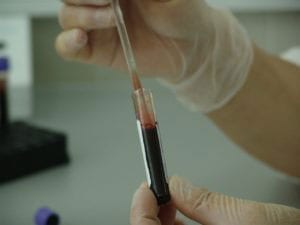Russell-Silver Syndrome (RSS)
What is Russell-Silver syndrome?
Russell-Silver syndrome (RSS) – which is referred to as Silver-Russell syndrome in Europe – is a rare genetic disorder. It is characterized by poor growth, feeding difficulties, intrauterine growth restriction (IUGR), large head size, a prominent forehead, body asymmetry, and a triangular shaped face.
What are the symptoms of Russell-Silver syndrome?
The severity and manifestation of symptoms varies widely between affected individuals. Possible symptoms include:
- Low birth weight
- Poor growth
- Low appetite
- Asymmetry (one side of the body is smaller than the other)
- Disproportionately large head
- Abnormal craniofacial features
- Ex: smaller jaw, triangular facial shape, prominent forehead, bluish discoloration of the whites of the eyes during infancy, narrow palate, and a small mouth with downturned corners
- Dental abnormalities
- Ex: Crowding of the teeth, missing teeth, and abnormally small teeth
- Gastrointestinal problems
- Inflammation of the esophagus, gastroesophageal reflux, delayed gastric emptying, food aversion, and no hunger sensation
- Hypoglycemia
- This causes dizziness, sweating, weakness, headaches, and hunger
- Delays in speech
- Hypotonia
- This may lead to delays in the development of motor skills
What causes Russell-Silver syndrome?
For about 60% of affected individuals, there is a confirmed genetic cause. The two known abnormalities are on chromosome 7 and chromosome 11. Around 30%-60% of patients have mutations on chromosome 11, whereas only 5%-10% have genetic abnormalities on chromosome 7. Research is still ongoing to understand the various causes of this disorder.
How is Russell-Silver syndrome diagnosed?
Diagnosis of RSS can be very difficult, as it is based on clinical findings, and the symptoms are extremely variable. However, guidelines have been established to help doctors better diagnose their patients. In some cases, genetic testing can confirm a diagnosis; however, in others, there is no established genetic cause.
What are the treatments for Russell-Silver syndrome?
While early diagnosis and intervention help lead to better outcomes in RSS patients, there is no treatment specific to RSS itself. In fact, treatment is aimed at the specific symptoms apparent in each individual.
Where can I find out more about Russell-Silver syndrome?
RSS Articles







